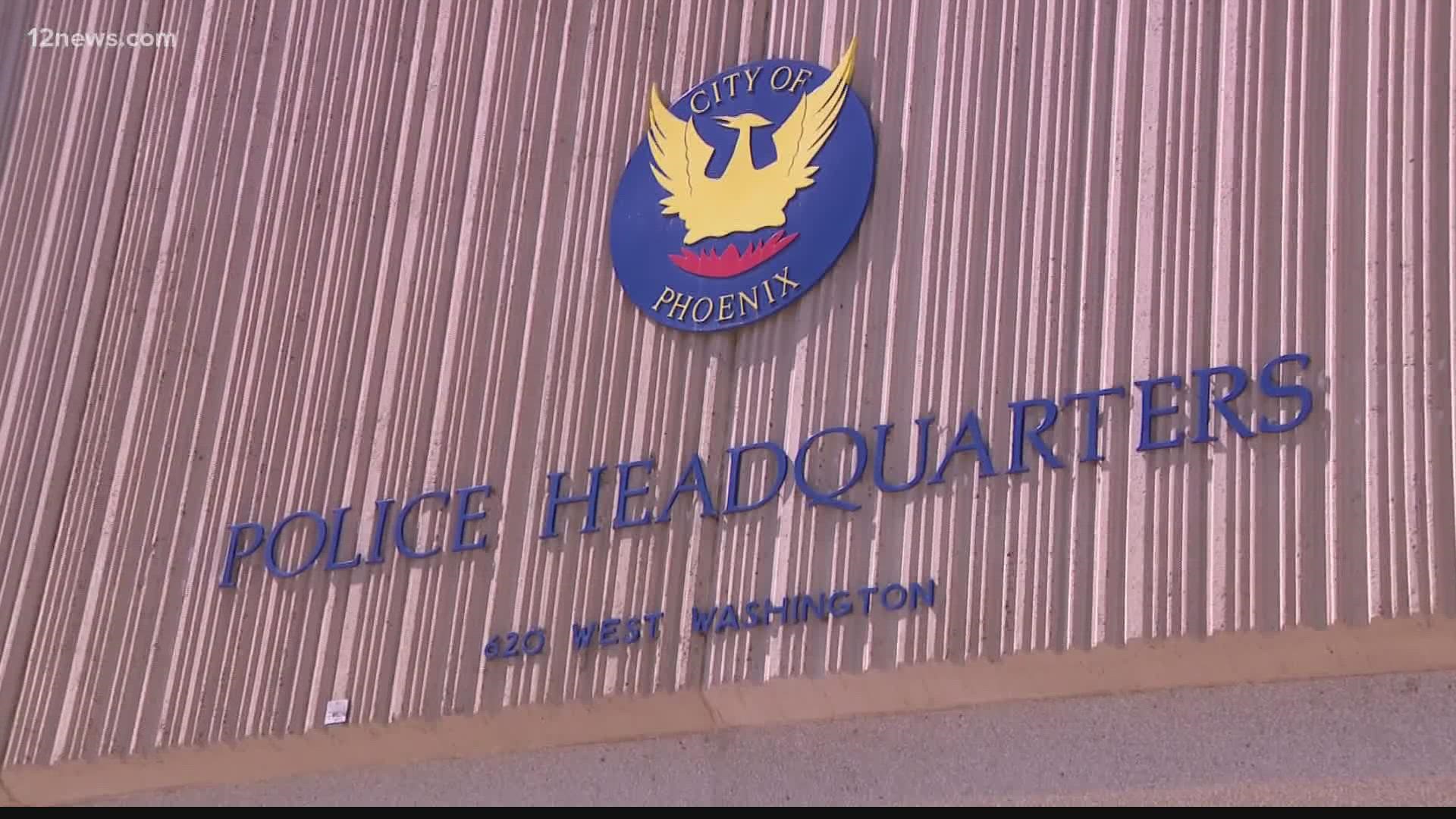PHOENIX — Newly unsealed documents show a judge in a civil case said four Phoenix police officers could be held liable for the actions when a man died in their custody five years ago.
“I can’t breathe”
Muhammad Muhaymin died in January of 2017 after police tried to take Muhaymin into custody after responding to a complaint at a community center in Maryvale.
Police confronted him and discovered that Muhaymin had an outstanding warrant. They took away his dog and tried to take him into custody
Muhaymin resisted being arrested and asked to call his sister to care for his comfort dog. In the struggle, Muhaymin was held face down by four Phoenix police officers while he was in handcuffs.
While being held down, Muhaymin is heard on body-worn camera video telling officers “I can’t breathe” in the minutes before he lost consciousness and died.
The City of Phoenix approved a settlement in the case for $5 million last month.
“At the end of the day, we don't have accountability, exactly,” David Chami, the attorney for Muhaymin’s estate said. “We have money.”
No qualified immunity
The Maricopa County Attorney’s Office did not criminally charge the officers at the time of Muhaymin’s death.
The federal lawsuit was filed shortly after Muhaymin died but was fought in legal proceedings in the nearly five years since that time.
“For five years, we've been fighting for the family knowing that probably the only opportunity they would have to tell their story was going to be in civil court, in federal court,” Chami said. “And so it was a really big deal because it basically gave them that platform.”
Newly unsealed documents in the civil case show Judge Susan M. Brnovich decided earlier this year that four officers named in the suit, and who were involved in the incident that led to Muhaymin’s death, were not entitled to qualified immunity.
“(B)ecause there is a question of fact as to whether they engaged in excessive force,” Brnovich wrote.
“Qualified immunity was created by the Supreme Court, and it protects public officials from being civilly liable, which means for money damages, for violating someone's constitutional rights,” Valena Beety, a professor of law at ASU’s Sandra Day O’Connor College of Law and Deputy Director for the Academy for Justice at ASU, said.
Beety said it’s rare that officers are denied qualified immunity.
“Unless there's an exact case on point that describes that behavior that the officer engaged in, then generally qualified immunity is going to protect an officer from liability,” Beety said.
Further impacts?
Both Chami and Beety said the decision in the civil case could have impacts as the Department of Justice investigates the Phoenix Police department.
That investigation is looking into how Phoenix police treat people with mental illness and those experiencing homelessness, both populations Muhaymin was a part of.
“We are hopeful that if they look closely enough at the actions of the officers, that with some of the officers, in this case, we are hopeful that they will make referrals to the US Attorney's Office to prosecute,” Chami said.
Chami and Beety also noted that the Maricopa County Attorney’s Office has the ability to prosecute the officers, but hasn’t.
In a statement to 12 News, a spokesperson for Maricopa County Attorney’s Office said:
“The court’s decision as to whether these officers are entitled to qualified immunity from civil liability is a separate inquiry from whether there is a reasonable likelihood that a jury would convict them of committing a criminal offense beyond a reasonable doubt.
Standing alone, the court’s decision does not impact the criminal analysis. As with all officer involved in custody deaths, this case was submitted to this office in 2017 and a determination was made at that time not to file criminal charges against the officers.
Should a law enforcement agency believe that additional evidence has been discovered that would justify resubmitting the case to our office for a second review, we would then review the case with those new facts and evidence and determine if criminal charges are warranted.”
In response to a request for comment on the judge’s ruling, a City of Phoenix spokesperson said:
“It’s important to understand that qualified immunity is a complex legal defense. For qualified immunity to apply, the court must first determine if a constitutional violation occurred. Here, because of the factual disputes, the court could not draw any conclusion about whether a constitutional violation occurred. Again, it left that decision to the jury.
To be clear, the judge’s decision is not a ruling regarding the responsibility of any of the police officers.”
Up to Speed
Catch up on the latest news and stories on the 12 News YouTube channel. Subscribe today.

